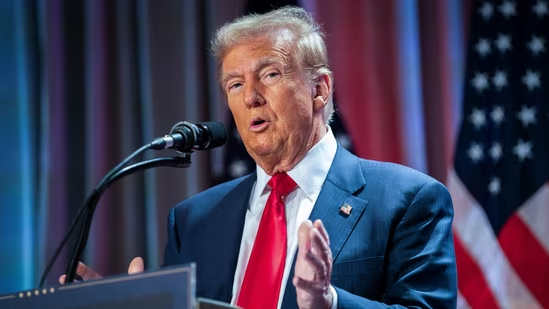In a pivotal decision, President Joe Biden has chosen not to enforce a TikTok ban scheduled to take effect on January 19, 2025, the day before his term ends. This move effectively shifts the responsibility to President-elect Donald Trump, raising questions about the app’s future amid national security concerns and its significant cultural impact in the United States.
Congressional legislation has mandated that ByteDance, TikTok’s Chinese parent company, divest its U.S. ownership by the same date or face a nationwide ban. This bipartisan effort underscores the government’s ongoing concerns about potential Chinese access to American user data.
Biden’s Decision and Its Implications
The TikTok ban was initially designed to address national security risks, with lawmakers citing the potential for ByteDance to share data with the Chinese government. Despite signing the legislation into law, Biden’s administration has opted to leave enforcement to Trump’s incoming team.
“This law represents a critical step in safeguarding American privacy and security,” a White House official explained. “However, the complexities involved in its enforcement and the transitional timing make it more practical for the next administration to handle.”
By declining to enforce the ban himself, Biden has left tech companies, users, and ByteDance in limbo. Firms like Apple and Google could face penalties for hosting TikTok if ByteDance retains ownership, adding another layer of urgency for the incoming Trump administration to act decisively.
Trump’s Stance: From Ban to Negotiation

During his first presidency, Trump was a vocal advocate for banning TikTok, citing national security risks. His executive orders on the matter led to numerous legal battles, but the platform remained operational. Now, as he prepares to take office again, Trump appears to have softened his position.
Sources close to Trump suggest his administration is exploring ways to preserve TikTok’s availability in the U.S. Incoming national security adviser Mike Waltz hinted that the new administration could prioritize a deal with ByteDance to ensure American user data is protected without banning the app outright.
“TikTok has become an invaluable tool for connecting with younger voters,” Waltz said. “We’re looking at options to safeguard user data while maintaining its presence.”
A Bipartisan Push for Security
The legislation requiring ByteDance to divest TikTok’s U.S. operations received bipartisan support, reflecting a unified stance on the app’s potential risks. Lawmakers argue that data collected by TikTok—ranging from location information to browsing history—could be exploited by the Chinese government for espionage or propaganda.
Senator Marco Rubio, a long-time critic of TikTok, emphasized, “This is not just about one app. It’s about securing our digital infrastructure and ensuring foreign powers can’t influence or monitor American citizens.”
Despite bipartisan agreement on the risks, there is no consensus on the solution. While some favor an outright ban, others advocate for stricter regulations or the sale of TikTok to a U.S.-based company.
Consequences for Tech Companies and Users
If ByteDance fails to divest by January 19, the law places U.S. tech companies in a precarious position. Firms like Apple and Google could face fines or legal challenges for continuing to host TikTok on their platforms. This potential liability raises the stakes for both tech giants and policymakers.
For TikTok’s 150 million U.S. users, the uncertainty is palpable. The app has become a cornerstone of digital culture, enabling creators to build careers and fostering connections across generations. A ban could disrupt these dynamics, leaving influencers and businesses scrambling to adapt.
Frequently Searched Questions Answered
Why is TikTok being banned?
TikTok is under scrutiny due to concerns that its parent company, ByteDance, could share American user data with the Chinese government. The U.S. government views this as a potential national security threat.
When will the TikTok ban go into effect?
The TikTok ban is scheduled to take effect on January 19, 2025, unless ByteDance divests its ownership of the app’s U.S. operations.
Did the Senate pass the TikTok ban bill?
Yes, Congress passed bipartisan legislation mandating ByteDance to divest TikTok’s U.S. operations or face a ban.
What happens if ByteDance doesn’t comply?
If ByteDance does not divest TikTok, the app will be banned in the U.S., and tech companies hosting it could face significant fines.
Is Trump planning to ban TikTok?
While Trump previously pushed for a TikTok ban, his incoming administration appears more open to negotiating a deal to keep the app operational while addressing security concerns.
What does the TikTok ban mean for users?
A ban could mean the removal of TikTok from app stores, effectively ending its availability in the U.S. Users would lose access to the platform, and creators reliant on it for income would face significant challenges.
A Platform at a Crossroads
TikTok’s future in the U.S. now hinges on the actions of the Trump administration and ByteDance’s willingness to comply with legislative demands. The next few months will be critical, as policymakers, tech companies, and ByteDance navigate this high-stakes situation.
For now, users can only wait and watch as the political, economic, and technological factors converge to determine the fate of a platform that has reshaped social media. Whether through divestiture, regulation, or banishment, the TikTok saga highlights the broader tensions between national security and digital freedom.
Sources and References
Recent Posts
- Trump’s Inauguration Promises: A Bold Vision for America’s Future
- The 60th Inaugural Ceremonies at the U.S. Capitol
- Stock Market Trends of 18 January 2025: A Global Perspective
- Blake Lively & Justin Baldoni: The Legal Drama Behind the Headlines
- Stock Market Trend on January 17, 2025: Mixed Performance Amid Economic Data and Geopolitical Concerns


